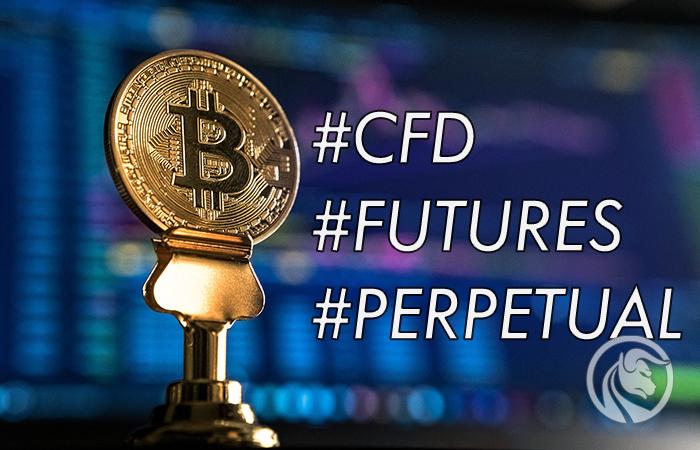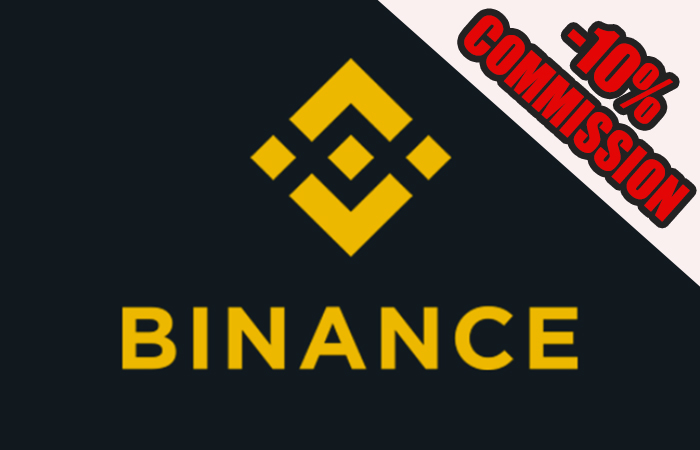Cryptocurrency contracts - how does it work?
Cryptocurrencies are "Speculative hit" recent years. High volatility and strong trends have attracted retail traders, both those with small capital and quite substantial ones. However, are we doomed to ordinary assets to invest in virtual assets? "Buy and hold"? No. The market also offers us derivatives, among others, which are becoming more and more popular cryptocurrency contracts. What types do we distinguish, what are they characterized by and where can we find them? This is what this article will be about.
Cryptocurrency contracts - what's the point?
While in the last few years, buying cryptocurrencies and keeping them on wallets was a long-term strategy that brought above-average rates of return, there were worse periods in the short and medium term, which meant weeks of reduced volatility, consolidation, and sometimes even stagnation. Additionally, as in every market, after the crazy gains, blood was spilled and strong corrections followed. All this made traders want to be able to speculate on the price with the possibility of taking positions on both ups and downs. It is also best to use leverage so that with less capital or in a period of low volatility, you can also get high rates of return. And the answer to these needs is precisely cryptocurrency contracts.
Contracts for exchange differences (CFD)
Forex brokerswho often offer from several hundred to even several thousand CFD instruments, already in 2017 noticed a growing interest in cryptocurrency trading - mainly Bitcoin. Therefore, BTC / USD, ETH / USD and LTC / USD pairs began to appear in the offers of currency brokers. Trading conditions were very average at first. High transaction fees, lack of continuity in trading, limitations in the volume of orders. All this, however, gradually improves over time, and brokers are trying to develop the cryptocurrency offer by adding new instruments and improving trading conditions. But what are CFDs themselves?
Contracts for exchange differences (Ang. contracts for differences - CFD) is simply an agreement between two parties to a transaction regarding a given financial instrument, where the main condition is the settlement of the difference in its purchase. These contracts do not have an expiry date and their subject matter is not "Physically delivered". They are available on the OTC market (over-the-counter market). Over-The-Counter) so they do not have uniform standardization for all brokerage offers (trading conditions may differ depending on the instrument provider). They generally occur on them swap points (therefore rather unsuitable for a strategy like #HODL), financial leverage (for cryptocurrencies usually in the range of 1: 2 - 1: 5), and the main transaction cost is the spread (sometimes an additional commission is added on the transaction value, but it is not a standard). It happens that there are time limitations regarding holding an open position, but it is not a rule. The other party to the transaction is always the broker and it is in his interest to adequately protect against the risk of loss or lack of liquidity on the market.
Advantages
- Offered by Regulated Forex Brokers;
- Available on advanced trading platforms;
- Theoretically unlimited liquidity (the other party to the transaction is the broker);
Disadvantages
- Negative swap points, most often both ways (for long and short);
- Low financial leverage;
- Trading continuity is not always available (ie 24h / 7 days);
- Relatively high transaction costs;
Check it out: Forex brokers offering trading on cryptocurrencies [List of offers]
Futures (Futures)
Futures, or popular futures, are contracts that stand out from the other two important features:
- are available on the regulated market (and are therefore standardized),
- have an expiry date.
Both of these features have their own significant advantages and disadvantages. Futures contracts provide for the possibility of physical delivery of the subject of the contract (e.g. crude oil, gold, wheat), but in practice this rarely occurs and the entire transaction is limited to the settlement of the purchase and sale price. The futures contract price does not necessarily reflect the market (spot) price of the asset perfectly. The longer the time to expiry (settlement) of the contract, the greater the difference may be.
Cryptocurrency futures are available, for example, on the Chiciago commodity exchange (CME - Chicago Mercantile Exchange). We have only two tokens at our disposal - Bitcoin i Ethereum. Initially, Bitcoin futures (symbol #BTC) were only available in size 1 contract = 5 BTC. With time, however, the micro version (symbol #MBT), where 1 contract = 1/10 BTC. For Ether contracts (symbol #ETH) 1 contract = 50 ETH. In all cases, the leverage is not the highest, approximately 1: 2 (CME requires a collateral of 43% of the notional transaction value). On the other hand, the commission is favorable, which in the case of #BTC is $ 10 per contract (5 bitcoins). This means that for 10 contracts (equivalent to 50 bitcoins) we will pay only ... $ 100 commission.
Binance cryptocurrency exchange offers quarterly futures contracts.
Advantages
- Uniform standardization of a given instrument;
- Available on the regulated CME exchange;
- Low transaction costs;
Disadvantages
- A small selection of instruments;
- Market dependent liquidity;
- Trading only from Sunday to Friday (on CME);
- Little leverage;
- The expiry date makes it impossible to maintain an open position for a long period of time;
Unlimited contracts (Perpetual Contracts)
Although the name may seem quite enigmatic, the instrument itself is not much different from the previously described CFDs. Perpetual Contracts in other words, open-ended contracts, that is, without an expiry date. This means that we can keep an open position on them for any length of time. However, there are equivalents of swap points - the so-called funding rate. However, unlike CFDs on cryptocurrencies, funding rate is often positive (depending on the disproportion between the contract price and the price on the spot market).
Trading with indefinite contracts is available on selected cryptocurrency exchanges, e.g. Binance. It is based on the so-called index price Index Price) of the given asset. The index price is the average price of a given instrument from the key spot markets. The calculation also takes into account the volume in these markets to avoid distorting the average price in the event of a liquidity disturbance in one of them. Unlike futures, due to the lack of an expiry date, the price of a perpetual instrument is usually very close to the spot price.
BINANCE: Register from the link below i save -10% on commission.
While on CFDs we can currently count on a leverage of 1: 2 with brokers from Europe (1: 5 outside the EU), cryptocurrency exchanges do not apply such restrictions anymore. Effect? Leverage of 1:25, 1:50 and even 1: 100 is standard. Of course, you also have to be aware of the risk. High leverage combined with equally high volatility in inexperienced hands is a recipe for a quick loss of capital (!).
Low transaction costs, market conditions and a huge number (compared to CFDs or Futures) of instruments available for trading make perpetual contracts very popular among speculators.
Advantages
- High financial leverage compared to other types of contracts;
- Low transaction costs;
- No time limits when opening a position;
- A large selection of instruments;
Disadvantages
- Only available on selected cryptocurrency exchanges;
- Possible stop-out fees;
- No standardization;
Check it out: The most popular cryptocurrency exchanges [List of offers]
Cryptocurrency Contracts: Summary
Each type of contract has its own significant pros and cons. Which of them best meets the expectations of a given trader depends on his capabilities, expectations and the level of acceptable risk. First of all, it is important to remember that, having cryptocurrency contracts, we are not de facto owners of cryptocurrencies. We only have exposure to their value change over time and we cannot transfer them, e.g. to a crypto wallet or online payments. This means that we can only speculate on a change in price over time.
| CFD | Futures | Perpetual | |
| Leverage on cryptocurrencies | 1:2 - 1:5 | 43% of the transaction value required | 1:20 - 1:200 |
| Swap points | *Yes | No | **Yes |
| Fees and Commissions | *** spread | commission (10 $ for 1 #BTC contact) | commission on the volume |
| expiration date | *No | Roof | No |
| Market | OTC | Adjustable | OTC |
| Where are they available | Forex brokers | Brokerage houses; cryptocurrency exchanges | Cryptocurrency exchanges |
| Suggested time horizon | short | short and medium term | each |
| Other | * Trading with breaks on weekends | Trading from Sunday to Friday | **** liquidation fee |
- * Depends on the broker;
- ** On cryptocurrency exchanges as "funding rate".
- *** There may also be an additional commission.
- **** In some cases, there may be a liquidation fee (activation of the Stop-out mechanism), which may amount to e.g. 0,5% of the nominal transaction value and lead to a negative balance,






















![Forex Club – Tax 9 – Settle tax on a foreign broker [Download the Application] Forex Club - Tax 9](https://forexclub.pl/wp-content/uploads/2024/02/Forex-Club-Podatek-9-184x120.jpg?v=1709046278)
![Trading View platform – solutions tailored to the needs of traders [Review] trading view review](https://forexclub.pl/wp-content/uploads/2024/03/trading-view-recenzja-184x120.jpg?v=1709558918)
![How to connect your FP Markets account to the Trading View platform [Guide] fp markets trading view](https://forexclub.pl/wp-content/uploads/2024/02/fp-markets-trading-view-184x120.jpg?v=1708677291)
![How to invest in ChatGPT and AI? Stocks and ETFs [Guide] how to invest in chatgpt and artificial intelligence](https://forexclub.pl/wp-content/uploads/2023/02/jak-inwestowac-w-chatgpt-i-sztuczna-inteligencje-184x120.jpg?v=1676364263)


![WeWork – the anatomy of the collapse of a company valued at $47 billion [WeWork, part II] wework bankruptcy story](https://forexclub.pl/wp-content/uploads/2024/04/wework-bankructwo-historia-184x120.jpg?v=1711729561)
![Adam Neumann – the man who screwed up Softbank [WeWork, part AND] adam neumann wework](https://forexclub.pl/wp-content/uploads/2024/04/adam-neumann-wework-184x120.jpg?v=1711728724)





![How to transfer shares to another brokerage office [Procedure description] how to transfer shares to another brokerage house](https://forexclub.pl/wp-content/uploads/2024/03/jak-przeniesc-akcje-do-innego-biura-maklerskiego-184x120.jpg?v=1709556924)

![The most common mistakes of a beginner trader - Mr Yogi [VIDEO] Scalping - The most common mistakes of a beginner trader - VIDEO](https://forexclub.pl/wp-content/uploads/2024/03/Scalping-Najczestsze-bledy-poczatkujacego-tradera-VIDEO-184x120.jpg?v=1711601376)
![Learning patience: No position is also a position - Mr Yogi [VIDEO] Scalping - Learning patience - No position is also a position - VIDEO](https://forexclub.pl/wp-content/uploads/2024/03/Scalping-Nauka-cierpliwosci-Brak-pozycji-to-tez-pozycja-VIDEO-184x120.jpg?v=1710999249)
![When to exit a position and how to minimize losses - Mr Yogi [VIDEO] Scalping - When to exit a position and how to minimize losses - VIDEO](https://forexclub.pl/wp-content/uploads/2024/03/Scalping-Kiedy-wyjsc-z-pozycji-i-jak-minimalizowac-straty-VIDEO-184x120.jpg?v=1710336731)




![Forex Club – Tax 9 – Settle tax on a foreign broker [Download the Application] Forex Club - Tax 9](https://forexclub.pl/wp-content/uploads/2024/02/Forex-Club-Podatek-9-300x200.jpg?v=1709046278)
![How to invest in ChatGPT and AI? Stocks and ETFs [Guide] how to invest in chatgpt and artificial intelligence](https://forexclub.pl/wp-content/uploads/2023/02/jak-inwestowac-w-chatgpt-i-sztuczna-inteligencje-300x200.jpg?v=1676364263)









